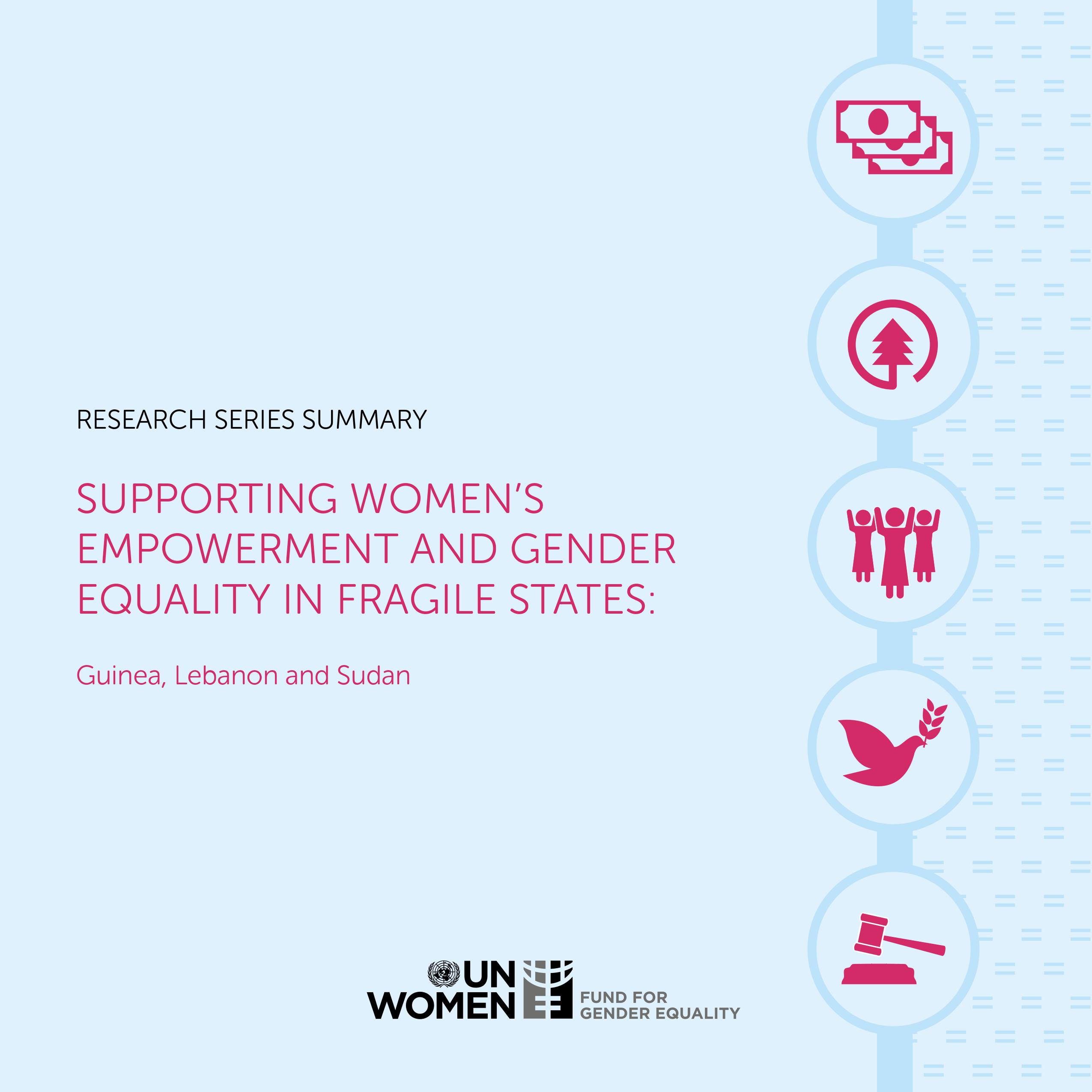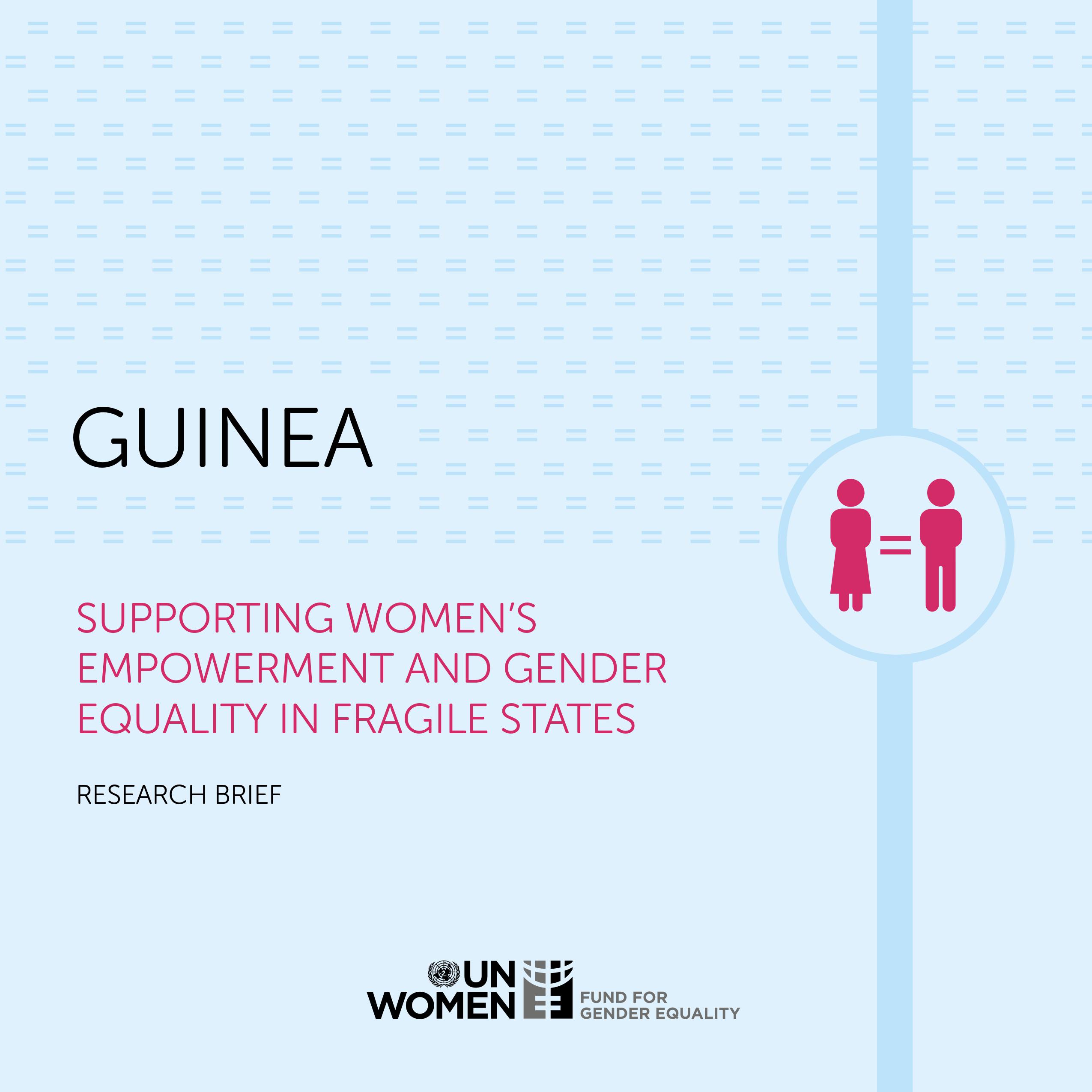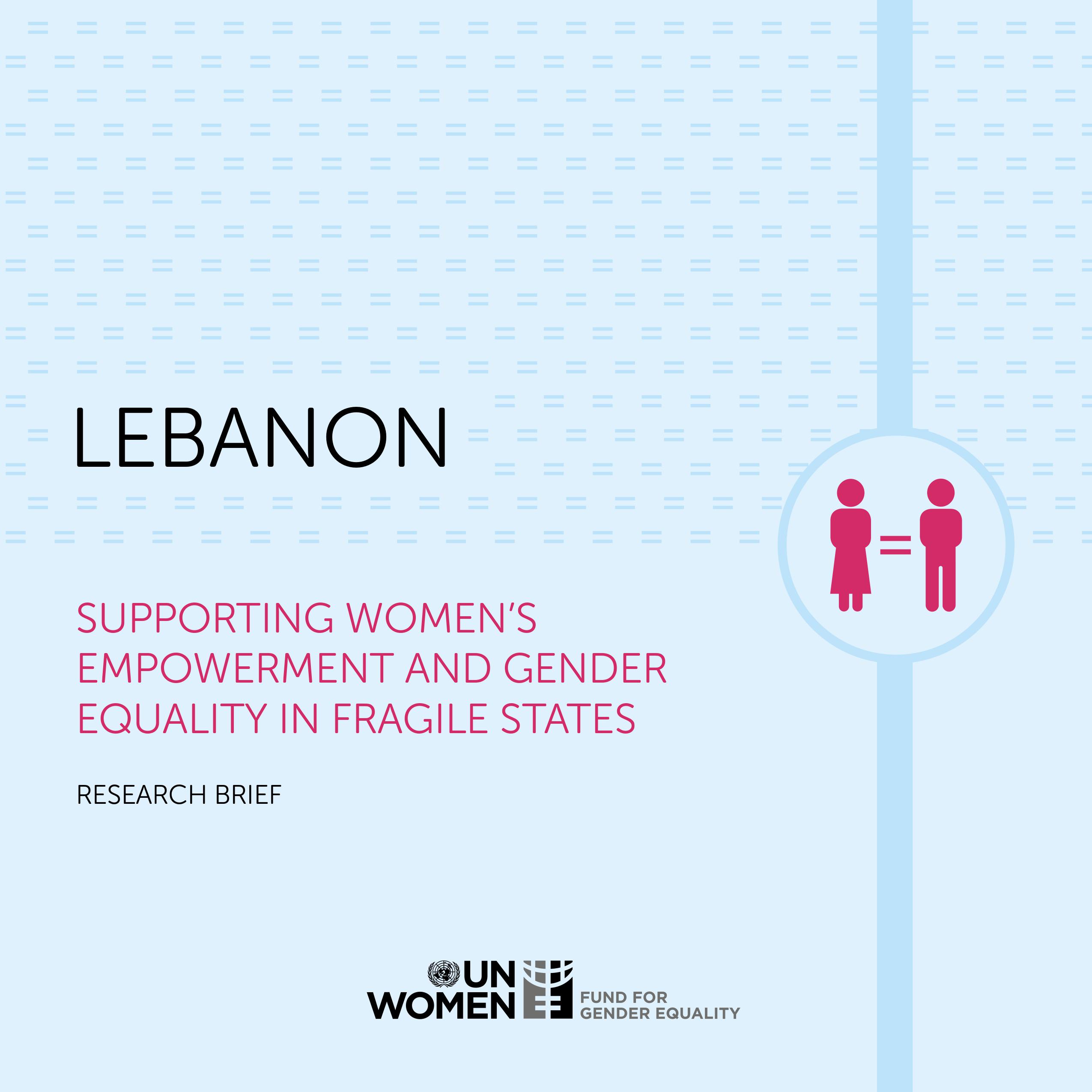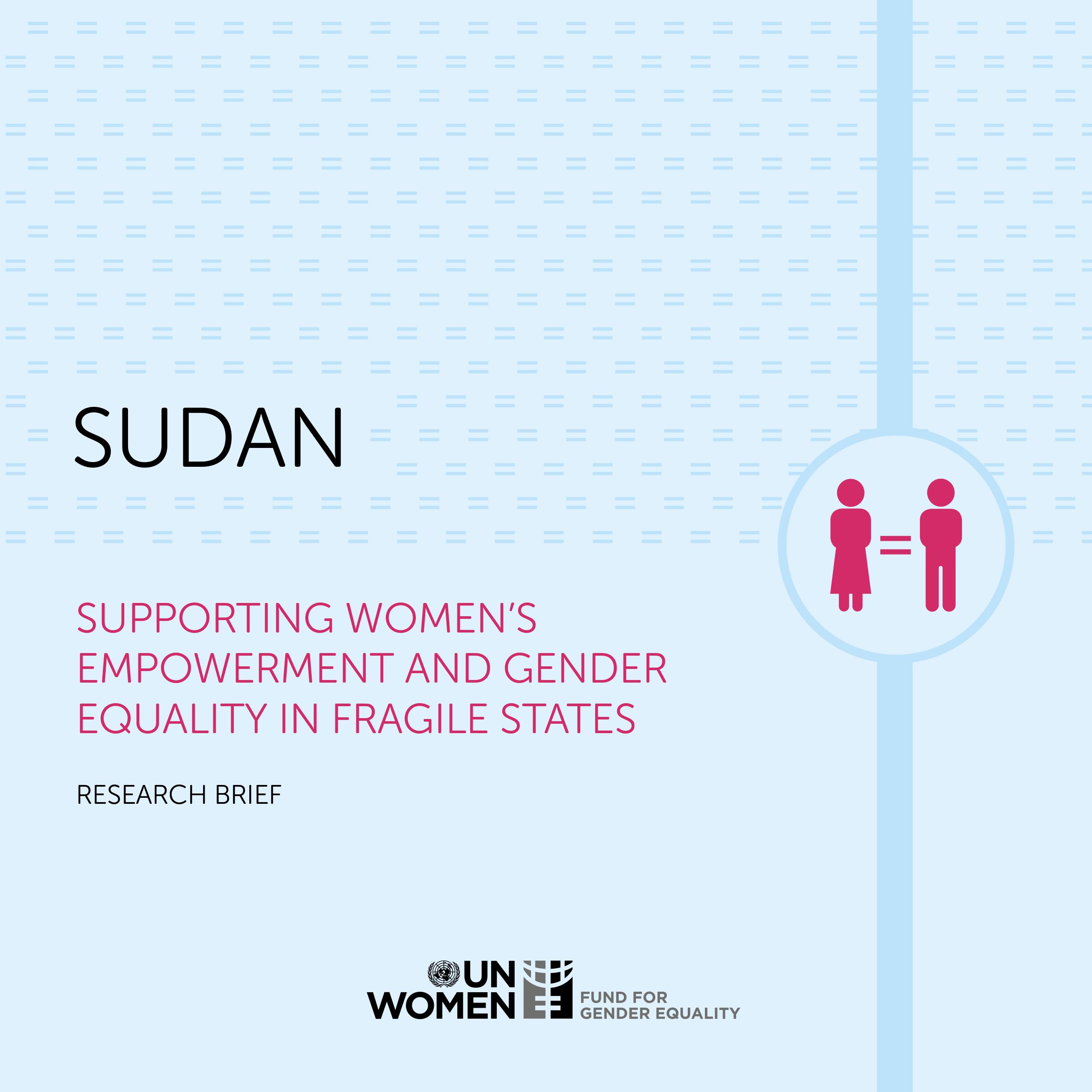Knowledge Initiative on Women’s Economic Empowerment in Fragile Contexts
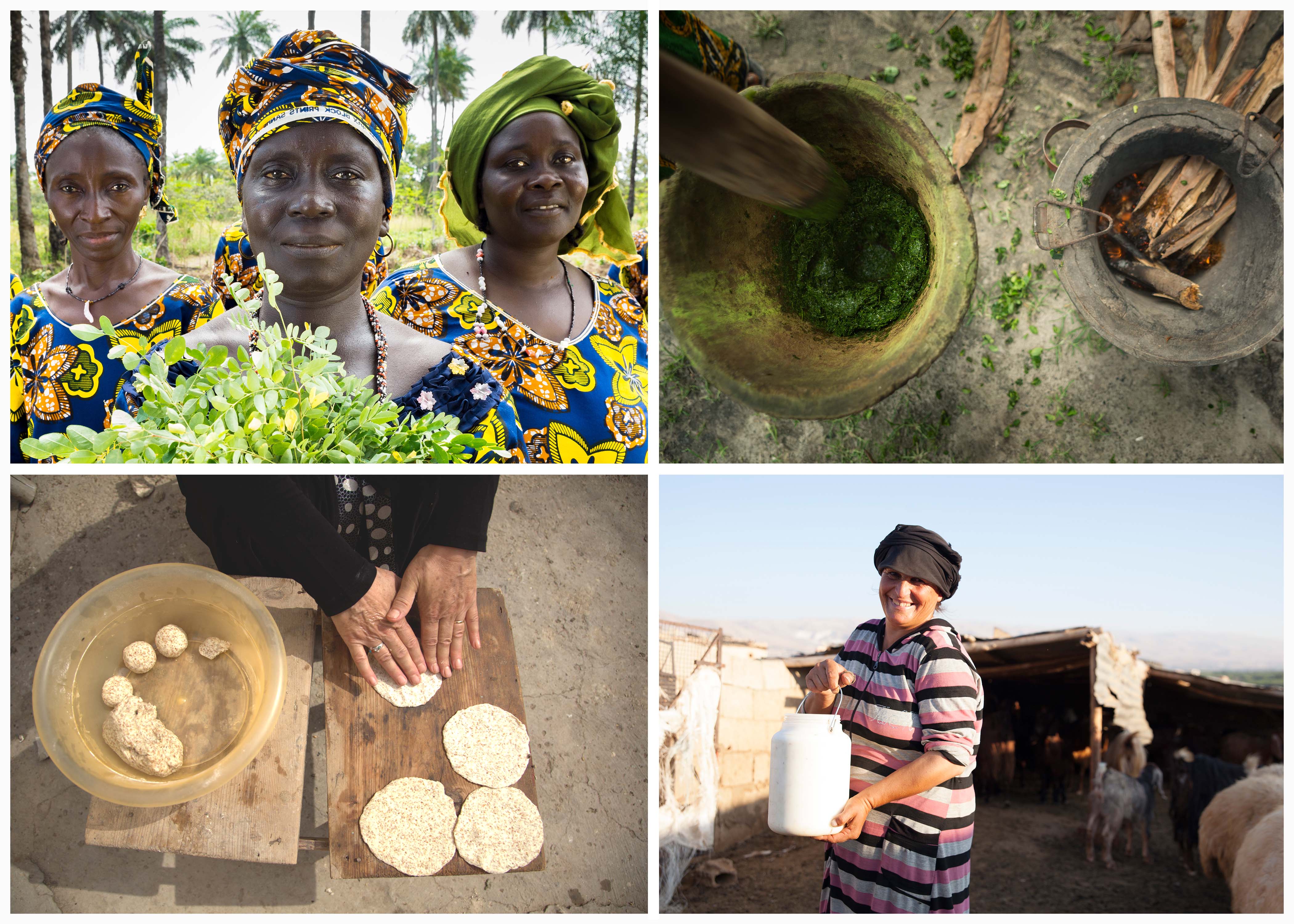
UN Women’s Fund for Gender Equality and the Government of Japan established a learning partnership in 2014 to explore good practices for strengthening women’s economic empowerment and resilience in fragile settings. Focusing on four grantee programmes implemented between 2013 and 2015— one in Guinea, two in Lebanon and one in Sudan—the initiative aimed to:
- Capture women’s perceptions of the local economic barriers and opportunities
- Share lessons learned and good practices for strengthening resilience
- Offer recommendations to help strengthen women’s empowerment programming
The Fund is now pleased to present the outcomes of the initiative.
Why Fragile Contexts?
Forty-three percent of the world’s people who live in severe poverty today are located in fragile States; among them, women, youth and children account for over 70%. As the international community takes steps to achieve an ambitious and integrated 2030 agenda, we must recognize the nexus between fragility, poverty and gender inequality as a complex challenge in need of real solutions.
“Integrating women’s empowerment activities into programme interventions in fragile states can strengthen resilience and facilitate recovery, especially among the most underserved communities“
Empowerment in Fragile States and Situations of Fragility, OECD 2012
Research Briefs
Using grantee case studies in Guinea, Lebanon and Sudan as entry points for knowledge gathering, the FGE has produced a series of country briefs that offer a more nuanced look at the real-time opportunities and barriers to women’s economic empowerment in three fragile contexts, including what is working, what is not and what is needed to help women realize greater empowerment, equality and inclusive development. A research series summary provides an overview of all three case studies.
Through area-based research and a compilation of grantee good practices and lessons learned, each brief offers insight into the local gender dimensions of fragility and a set of recommendations to help scale strategies and interventions that work for women and their communities.
In this series, the FGE also presents:
- Findings of the FGE’s perceptions survey research, conducted in 2015 with over 1,200 rural, displaced and refugee women in Guinea, Lebanon and Sudan
- A programme-oriented framework for understanding empowerment as a set of four components working together: productive resources, personal resources, institutional relations and interpersonal relations.
Videos
As part of this initiative, the Fund has also produced a set of informative communications products, including professional photographs and four videos, to enhance the visibility of highly effective civil society programmes supported by the Fund in Lebanon and Guinea, increase the understanding of the essential contribution that women in fragile contexts are making in their economies and societies, and inspire different audiences to promote such kind oF initiatives on the ground.
Guinea
With the support from the Fund, Partenariats – Recherche – Environnement - Medias (PREM) has supported over 300 women to become cooperative members and equal partners in community-based development. In this video, Foulematou Keita and Aissta Keita – two cooperative leaders – discuss the many contributions women make to the economic life of Tristão Islands society.
Moringa is a vitamin-rich tree that supports biodiversity and prevents soil erosion. In this video, Aissta Keita - President of a cooperative in Tristão Islands - discusses how learning to plant, dry and package moringa products through PREM’s programme has created economic opportunities and transformed the community’s outlook and care for the environment.
Lebanon
Thanks to a Fund’s grant, the Society for the Protection of Nature in Lebanon (SPNL) is supporting rural Lebanese women and local municipalities to become partners and champions of the environment by promoting local ownership of sustainable resource management. This video follows the story of Nahla Sukkari, a woman from Lebanon’s Bekaa region.
This video follows the story of a rare, traditional bread and its journey from southern Lebanon to the MENNA (‘from us’ / ‘made by our hands’ in Arabic) shop in Beirut, launched by the Fund’s grantee Amel Association. The Mawasem El Dayaa Cooperative is one of 14 rural women’s cooperatives to benefit from the vocational trainings and market opportunities offered by Amel.
